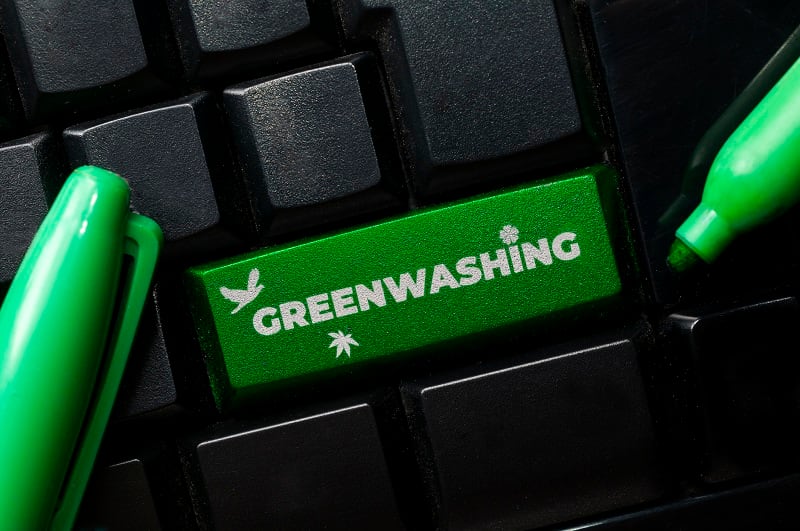Last year, the CMA announced that it was investigating the impact of green marketing on consumers. As part of this, it led an analysis of websites – alongside other global authorities – which found that 40% of green claims from companies in a host of sectors, including food and beverage, made online could be misleading.
The CMA has now set out its views on the types of misleading environmental claims made about products that could break the law.
The draft guidance explains the best way for businesses to communicate their green credentials, while reducing the risk of misleading customers and comes as more than half of UK consumers, it said, take environmental considerations into account when buying products.
Two thirds of consumers in Europe, meanwhile, are open to changing their eating habits for the environment, according to the European Consumer Organisation BEUC, with over half of respondents saying that sustainability concerns have some influence (42.6%) or a lot of influence (16.6%) on their eating habits.
The CMA gave an example of a loaf of bread labelled as ‘Organic Sourdough’. Sector-specific rules mean food products must be made from at least 95% organic ingredients to be labelled as organic. Therefore, a claim would be misleading if that threshold was not met.
If offered another example of a yoghurt previously packaged in a blue pot now promoted with a large green leaf covering the front of the pot, together with the words ‘reduced plastic packaging’. However, the amount of plastic has only been reduced by 5% by removing the lid that previously sat on top of the foil seal. What’s more, too do that, the manufacturer moved its production facilities, adding significantly to the distance the yoghurt travels and negating any overall reduction in environmental impact.
According to the CMA, although the claim is true “the way it is presented is likely to give the impression that there has been a bigger reduction and the product is better for the environment than is really the case”.
In a similar example, a disposable cup is marked as ‘compostable’, with no further information provided. The CMA said this is likely to be misleading as it does not specify the circumstances under which the product is compostable and the action the consumer needs to take. In this example, the cup will not compost in a home compost bin: an industrial composter is required, so consumers can only compost it if their local authority collects food and compostable waste for industrial composting.
The proposed guidance sets out six principles that environmental claims should follow.
The CMA said they must:
- Be truthful and accurate: Businesses must live up to the claims they make about their products, services, brands and activities.
- Be clear and unambiguous: The meaning that a consumer is likely to take from a product’s messaging and the credentials of that product should match.
- Not omit or hide important information: Claims must not prevent someone from making an informed choice because of the information they leave out.
- Only make fair and meaningful comparisons: Any products compared should meet the same needs or be intended for the same purpose.
- Consider the full life cycle of the product: When making claims, businesses must consider the total impact of a product or service. Claims can be misleading where they don’t reflect the overall impact or where they focus on one aspect of it but not another.
- Be substantiated: Businesses should be able to back up their claims with robust, credible and up to date evidence.
Andrea Coscelli, Chief Executive of the CMA, said ‘more people than ever are trying to make choices which are better for the environment’.
“Many businesses are already doing the right thing by being clear and upfront about how green a product really is, but that’s not always the case. We’re concerned that people are paying extra for so-called ‘eco-friendly’ products and those businesses which are genuinely investing in going green aren’t getting the recognition they deserve,” she said.
“We’re seeking views on our draft guidance, which clearly sets out what we propose businesses should do, to reduce the risk of misleading their customers. People must be able to trust the claims they see and businesses must be able to back them up.”
Michael Briggs, Head of Sustainability at Which?, said the draft guidance would be welcomed by businesses and consumers.
“It is good to see the CMA focusing on tackling misleading environmental claims by publishing this draft guidance. We know that consumers want to make more sustainable choices but risk being misled by some brands and manufacturers using environmental claims to market products and services that fail to live up to their ‘green’ credentials.
“Businesses should take heed of this guidance from the regulator and put a stop to greenwashing so that people can trust the information they see and make informed decisions. Otherwise, the regulator must be prepared to take enforcement action to tackle this issue.”
According to the CMA, if it finds evidence that businesses are misleading consumers, then it will take ‘appropriate’ action.
Last year, the Advertising Standards Authority (ASA) reprimanded a series of firms in the UK for making misleading or confusing sustainability claims in adverts. In April a Burger King advert was banned for falsely claiming its new plant-based ‘Rebel Whopper’ burger was suitable for vegetarian and vegan diners. In September, a Quorn advert was ruled to be misleading over not clearly explaining its environmental claims.
An ASA spokesperson told FoodNavigator: “Our industry takes its responsibilities on climate action seriously and recognises the role it can play in promoting a more sustainable future for all.
“Accuracy and honesty in all advertising is paramount and any advertiser must avoid statements that could be perceived as ‘greenwashing’. This is an area carefully regulated by the Advertising Standards Authority which expects advertisers to be able to show evidence for any claims they make on the environmental impact of the products and services they feature.”
Paul Foulkes-Arellano, founder of Circuthon Consulting, which advises businesses wanting to transition to a circular economy model, said the latest guidance would tighten up instances of companies seeking to exploit shopper interest in products seen as environmentally positive.
"You can be prosecuted for omitting to say things that you should be saying - that's the bit where food brands could potentially be caught out."
But he added there will still be 'anomalies' in what's allowable. He also said that those brands with 'genuine' environmental stories to tell "need to somehow represent that visually and use very tight wording so that people begin to learn what are the genuine benefits so they are not misunderstood by shoppers... a brand that has genuinely good message has to fight super hard to get that across."





